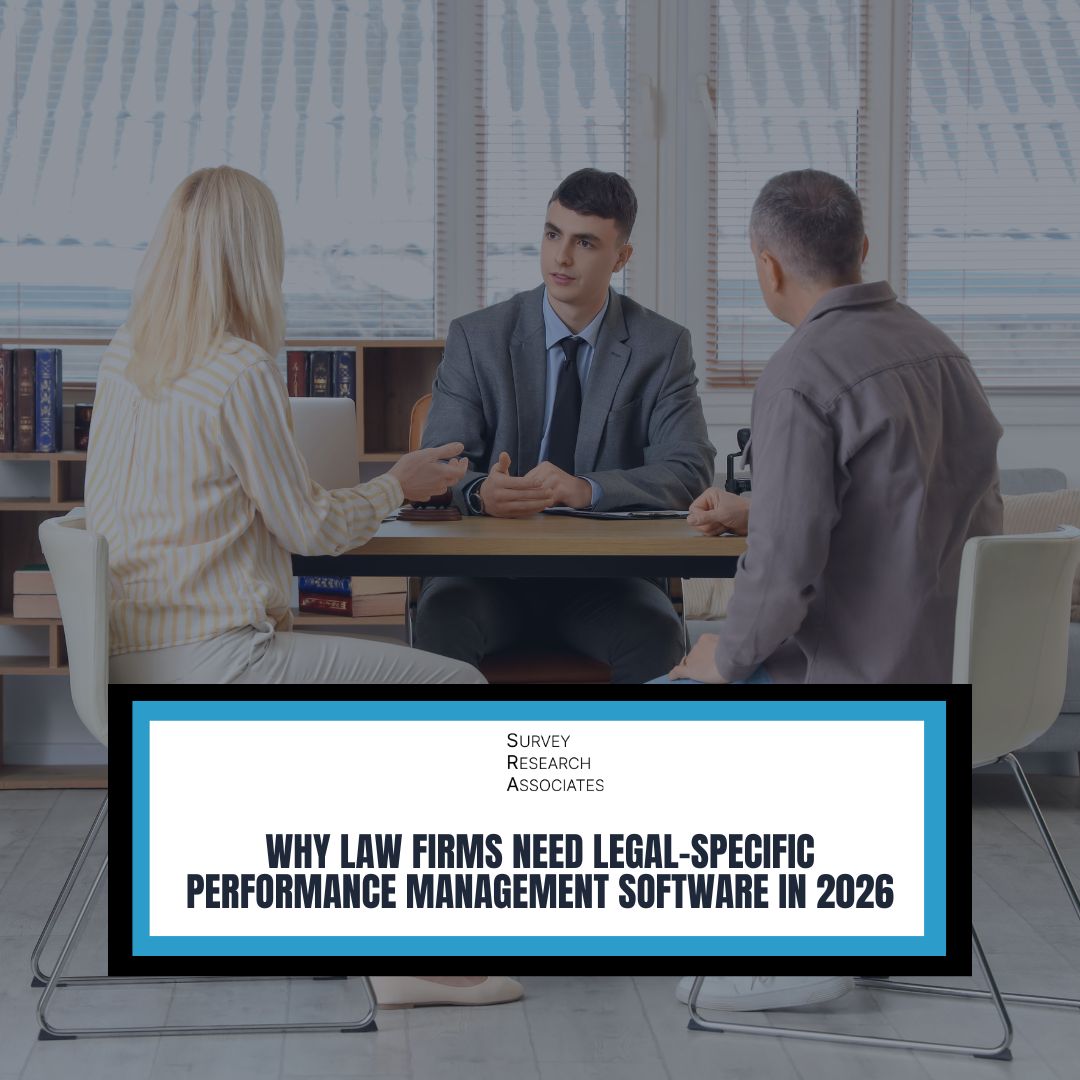In law firms, confidentiality isn’t a preference, it’s a professional obligation.
Every upward review, feedback form, and evaluation contains sensitive information about people and performance. If that data leaks, even once, trust is gone.
Yet, when choosing performance management software, many firms focus on features before foundations. They ask:
“How easy is it to use?” or “Can it integrate with Outlook?”
But the first question should always be:
“Is my firm’s data truly secure?”
At SRA, we’ve built our systems around one belief: feedback only works when it’s protected.
Here are seven security questions every firm should ask and how SRA answers each one.
1. Is the platform independently certified for data security?
A vendor’s promise of “bank-grade encryption” means little without verification.
Independent audits like SOC-2 Type II and ISO-27001 are the gold standard for proving a platform’s security practices are continuously monitored and tested.
How SRA Meets It:
SRA is SOC-2 Type II certified and ISO-27001 compliant, which means our internal controls, data handling, and encryption practices are independently validated each year.
Your firm doesn’t have to take our word for it, it’s verified by external auditors.
2. Where is your firm’s data stored and who can access it?
Data jurisdiction matters.
When data is stored in multiple global data centers, firms risk exposure to foreign privacy laws or unregulated subcontractors.
How SRA Meets It:
All SRA data is hosted in U.S.-based, Tier-IV secure data centers with redundant backups and disaster recovery protocols.
Access is restricted to authorized SRA personnel under strict confidentiality agreements, and client data is never shared with third parties.
3. How does the system protect confidential feedback?
Confidentiality is the backbone of honest feedback.
If associates fear their comments can be traced back, responses become cautious and culture data becomes useless.
How SRA Meets It:
SRA’s platform separates identifying metadata from responses at the database level.
Anonymity thresholds ensure no feedback is displayed unless a minimum number of responses are met.
We apply role-based access control (RBAC) so PD teams can see insights without exposing individual voices.
4. What safeguards exist against internal misuse?
Security threats don’t just come from outside. Internal misuse an admin downloading all comments or sharing results too early can cause equal harm.
How SRA Meets It:
We operate on the principle of least privilege. Every admin role in the system is granularly permissioned.
Activity logs and audit trails capture every access and change, and our system automatically flags unauthorized data exports or downloads.
5. How is client support structured in case of a breach or incident?
Even the most secure systems prepare for the worst.
Firms should know who to call, how incidents are handled, and how quickly the vendor will respond.
How SRA Meets It:
SRA’s 24/7 incident response team follows a documented escalation protocol aligned with NIST standards.
In the rare event of a potential issue, clients are notified immediately with a root-cause analysis and remediation plan.
We don’t just fix, we explain.
6. Can the system adapt to your firm’s security policies and IT environment?
Each firm’s infrastructure is unique. Some require single sign-on (SSO), others mandate private VPNs or custom encryption layers.
A vendor should meet your standards, not the other way around.
How SRA Meets It:
SRA offers full SSO integration (Okta, Azure AD, Google Workspace), supports private key encryption, and complies with custom retention policies defined by your IT team.
We collaborate with firm IT to match existing policies rather than forcing new ones.
7. Does the vendor treat data protection as a legal and ethical obligation or a feature?
Some platforms market security as an optional upgrade.
In a profession built on confidentiality, that’s unacceptable.
Security isn’t a product, it’s a promise.
How SRA Meets It:
At SRA, data protection is part of our DNA.
Every process, from survey design to reporting is engineered to protect identity and maintain psychological safety.
Our clients trust us not only because we meet compliance checkboxes, but because we treat every dataset like privileged information.
Final Thought: Trust Isn’t Built with Encryption, It’s Built with Integrity
Technology changes fast, but trust doesn’t.
Law firms need feedback systems that not only collect insights but also protect dignity of both the people who give feedback and those who receive it.
SRA’s 30-year legacy in the legal industry is built on that principle.
Our technology may evolve, but our promise remains the same:
your data, your people, your trust protected, always.
Protect Your Feedback. Protect Your Firm.
If your firm is evaluating feedback systems, don’t start with features, start with security.
Let’s discuss how SRA keeps your data safe, confidential, and compliant with the highest standards in the industry.
Schedule a confidential security walkthrough → https://www.srahq.com/contact
Suggested Reads:
- How Small Law Firms Can Build Trust With Confidential Upward Feedback
- What to Measure: The 4 Metrics That Actually Matter in Legal Performance Reviews
- Top Legal Performance Management Tools for Law Firms in 2025


